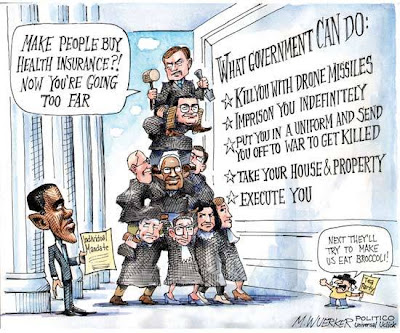It was a Bush and Conservative Republican fairy tale that tax cuts would pay for themselves and create jobs. That while trickle down supply-side economics did not work under Reagan and has never worked any where for long, this time, with a little magic and wishful thinking voodoo economic would work. Mitt is not one to give up on the belief in voodoo economic magic.
Many Americans Will Buy Romney's Economic Fairy Tales Just Like They Bought Bush's
Mitt Romney delivered a speech today about the budget deficit. It’s hard to wrap your arms around Romney’s argument, because it’s an amalgamation of free-floating conservative rage and anxiety, completely untethered to any facts, as agreed upon by the relevant experts.
In the real world, the following things are true: The budget deficit was projected to top $1 trillion even before President Obama took office, and that was when forecasters were still radically underestimating the depth of the 2008 crash. Obama did propose temporary deficit-increasing measures, an economic approach endorsed in its general contours, if not its particulars, by Romney’s economists. These measures contributed a relatively small proportion to the deficit, and their effect is short-lived. Obama instead focused on longer-term measures to reduce the deficit, including comprehensive health-care reform projected to reduce deficits by a trillion dollars in its second decade. Obama put forward a budget plan that would stabilize the debt as a percentage of the economy. Obama has hoped to achieve deeper long-term deficit reduction by striking bipartisan deals with Congress, and he has tried to achieve this goal by openly endorsing a bipartisan deficit plan in the Senate and privately agreeing to a more conservative plan with John Boehner, both of which were killed by Republican opposition to any higher revenue.
The story told by Romney is one in which all of these things are either untrue or could not possibly be true.
Romney elides some inconvenient facts — for instance, by asserting “Then there was Obamacare. Even now nobody knows what it will actually cost,” which is literally true in the sense that precise cost estimates are always impossible, but sounds to his audience like a claim that the program will swell the deficit in vast, unknowable ways. But most of Romney’s speech doesn't even refer to the facts stated above. It's simply orthogonal to facts. It’s a story, one in which Obama increased the deficit because he loves big government and Europe and hates the private sector.
Not only does Romney elide vast swaths of established facts about the deficit, it’s fairly clear that he does not operate within the mainstream understanding of the term “deficit” at all. As Jonathan Bernstein has repeatedly explained, modern Republican behavior and even language in relation to the deficit is completely nonsensical if you understand “the deficit” to mean the gap between revenue and outlays. Republican use of the term only makes sense if you define “the deficit” to mean “spending Republicans don’t like.” That’s why Republicans consider it impossible to believe that one could simultaneously extend health insurance to the uninsured while reducing the deficit.
Look at Romney’s terms to describe deficits, and it’s pretty clear he has adapted himself to his party’s conceptualization of it. His speech includes the following phrases:
a financial crisis of debt and spending
Washington has been spending too much money
out-of-control spending sprees, or to piling up massive amounts of debt
This is why I do not, for one moment, share my opponent’s belief that our spending problems can be solved with more taxes.
In Romney’s telling, the terms debt and spending are essentially interchangeable. When presented with Obama’s position — that the solution to the debt ought to include both higher taxes and lower spending — he rejects it out of hand. Naturally, Romney has admitted before that his budget plan “can’t be scored.” It’s an expression of conservative moral beliefs about the role of government. While loosely couched in budgetary terms, Romney is expressing an analysis that resides outside of, and completely at odds with, mainstream macroeconomic forecasting and scoring assumptions.
Cannot be "scored" means that no unbiased expert will say that his plan will reduce the deficit. No unbiased expert will say that the Romney plan
will not gut Medicare. Tax cuts did not create jobs from 2001 to 2008 - employment remained flat. Extending tax cuts did not create jobs from 2008 until today ( the stimulus created jobs). never mind the facts, Romney will have more tax cuts for millionaires because conservatives believe the elite should not pay their fair share for the cost of America's infrastructure. America's wealthiest citizens and corporations are the biggest group of welfare recipients. They are
supported by a middle-class that is shrinking every year.
Mitt Romney has a long history of attacking firefighters and their unions, going back to his days in Massachusetts
President Obama was right,
Wages haven’t kept pace with recovery, study finds.
The stock market is improving.
Corporate profits are up dramatically. But workers’ wages don’t seem to be rising, a study finds.

















































